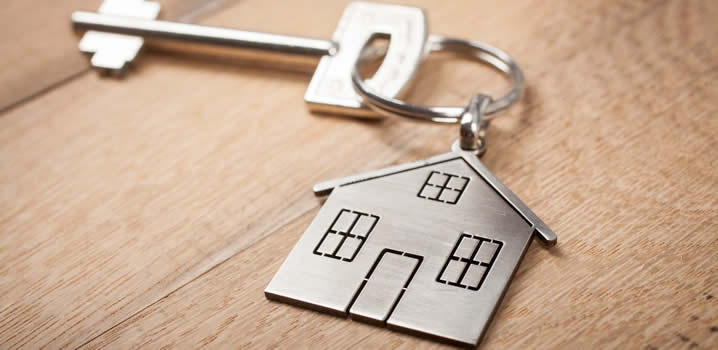How much can I borrow for a mortgage?

The amount of money you can borrow depends on a number of factors:
- The deposit you’ve saved
- The amount that you earn
- Your outgoings
- Future changes which might affect your earnings, such as redundancy, having a baby or switching jobs
There are several mortgage calculators available online which will let you see at a glance how much you could potentially borrow.
You can also work out how much deposit you’ll need if you haven’t started saving yet – or if you’ve found a property and you want to know if you have enough deposit to get a good deal on a mortgage.
How do mortgage lenders decide how much to loan people?
In the past, lenders made a decision on how much to loan you based on a multiple of your income – this was known as a 'loan-to-income ratio'.
This meant that the home you could afford was directly linked to how much you earned – if you earned £45,000, you could borrow 3-5 times that amount, so you could, in theory, get a mortgage for £225,000. At present, mortgage lenders cap the loan-to-income ratio at four-and-a-half times your income. As the rate of pay for many British workers often fluctuates, this means people rely on large deposits to show their mortgage provider they can afford a good value mortgage.
What do lenders look at when they decide how much to lend people?
When they’re deciding how much to loan you, your lender will look at:
- Your salary
- Any additional income you have – for example, from freelancing or from investments
- Any outgoings you have – such as bills, credit card debts and child maintenance
- Non-essential payments, such as money you spend on clothes, entertainment and meals out
What do mortgage providers need to see proof of?
You’ll need to provide pay slips and bank statements as evidence of your income and outgoings. It’s a good idea to be honest – if what you’ve said about your outgoings doesn’t match with your bank statements, it can delay getting your mortgage.
If you’re self-employed, you’ll need to provide:
- Recent bank statements
- Details of your business accounts
- Details of the income tax you’ve paid
Things which could change how much you earn
Lenders will want to know if you could pay your mortgage if:
- Interest rates increased
- If you or the person you’re buying with lost your job(s)
- If you lost your job or you couldn’t work because of illness
- If you had a baby or switched jobs/took a lower-paid job in a new sector
You can help to protect yourself and put lenders’ minds at ease by building up your savings as much as possible. It’s a good idea to budget enough for three months’ outgoings, including your mortgage payments.
How to find a mortgage which will let you borrow the maximum amount
Step one to finding a great deal is to be clear on what you want from a mortgage:
- Know which kind you want – this includes deciding if you want a repayment or interest-only mortgage, or a fixed or variable rate mortgage
- Find out exactly how much money you have for a deposit, including your own savings and any money which family or friends might gift you
- Factor in the money you’ll need for associated fees, including stamp duty, solicitors’ fees and survey costs, and take this out of the money you have for your deposit
Next, you could have a look at well-known comparison websites to find a mortgage tailored to your needs. However, they won’t all give you the same results, so make sure that you try several sites and compare the results you’re offered.
Related Articles
- What is a commercial mortgage
- What is a mortgage broker?
- What is a tracker mortgage?
- Getting a second mortgage and buying a second home
- What does freehold mean?
- What credit score is needed for a mortgage?
- What is a 95% mortgage?
- Stamp duty on new builds
- Stamp duty on second homes and buy-to-let properties
- Stamp duty for first-time buyers
- Stamp Duty Land Tax (SDLT) explained
- What to do if you’ve been rejected for a mortgage
- What is a mortgage?
- Can you apply for a mortgage with credit card debt?
- What to ask estate agents when purchasing a property
- Can I apply for a mortgage in retirement?
- What is porting a mortgage?
- What is a joint mortgage?
- Offset mortgages explained
- What is a mortgage in principle?
- What’s a mortgage deposit?
- Purchasing property with friends
- Costs and fees to consider when you’re buying a home
- Getting a no deposit mortgage with bad credit
- Do you have Right to Buy on your council home?
- Saving for a mortgage deposit
- What is a mortgage interview?
- How do credit scores affect mortgages?
- What to consider when applying for a mortgage if you’re self-employed
- Buying property – what is conveyancing?
- Buying a property – what is gazumping?
- Types of home improvement loans
- What happens to a mortgage after death?
- Getting credit-ready before applying for a mortgage
- How do mortgage applications work?
- Selling property – what to ask estate agents
- Selling property – estate agents vs doing it yourself
- Buying a leasehold property
- Help to Buy: equity loan
- London Help to Buy
- Mortgages for self build and custom build homes
- Help to Buy: Shared Ownership
- What is a Help to Buy: ISA?
- Resources for first-time buyers
- Buy-to-let mortgages explained
- What is remortgaging?
- How mortgage repayments work
- Understanding Mortgages
- Types of Mortgages
- Mortgage rates & decision
- Homebuyer's guide